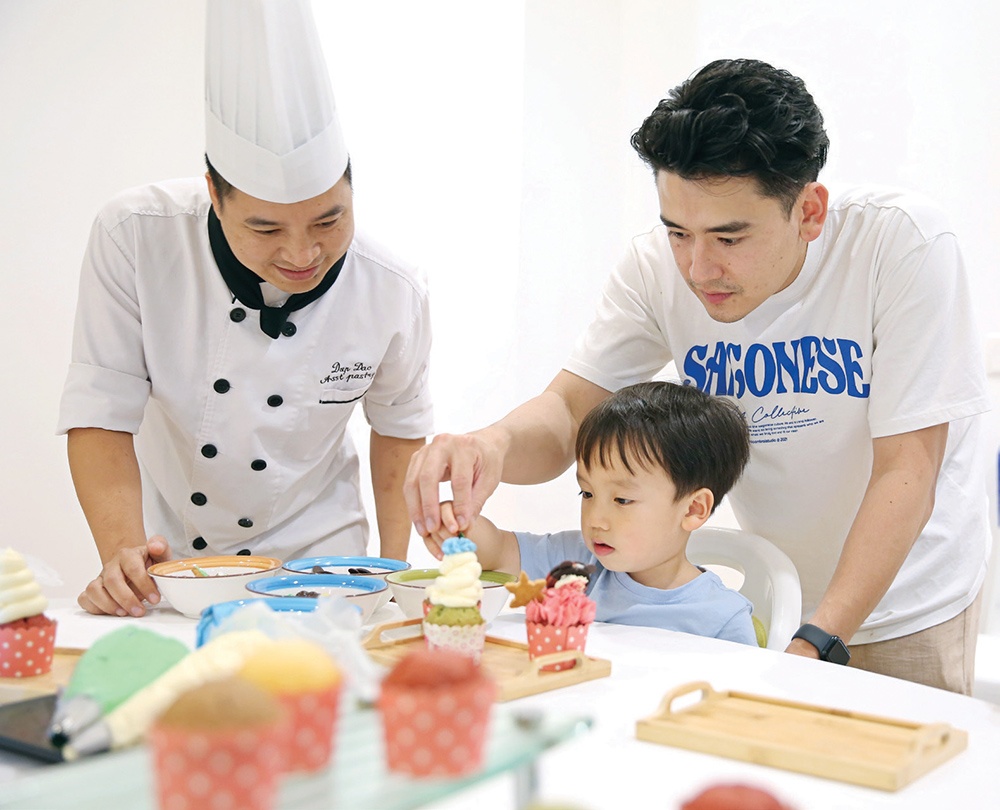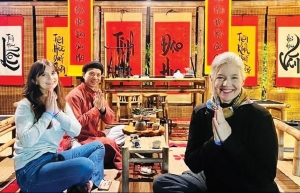Tourism and hotel industry requires lifelong training
More than 200 students participated in a training course on bar mixing skills and essential soft skills such as leadership, communication, critical thinking, and problem-solving in a three-day lifelong learning training course organised by Hanoi Tourism College earlier in May.
 |
| Tourism and hotel industry requires lifelong training |
At the training session on bartender skills, Nguyen Quang Trieu, a student of the Department of Food Processing Management at Hanoi Tourism College, said that although the lesson was more attractive and lively than regular classes as they are taught practical skills by instructors.
“We were able to directly witness bartenders mixing and learn new recipes and techniques. In addition, the information about the types of wine provided by the bartender is also very interesting,” he said.
Hanoi Tourism College each year supplies about 7,000 people for the industry’s labour market. According to college principal Trinh Cao Khai, tourism is constantly changing and has an increasingly high level of competition, so updating new knowledge and skills is necessary to ensuring tourism human resources always meet the requirements of the labour market.
“This becomes even more important in a context where the tourism industry is experiencing constant fluctuations and developments, from changing travel trends to the emergence of new technologies,” he said.
For many years, Hanoi Tourism College has cooperated with many partners to organise soft skill training courses to support students in improving their knowledge and increasing career opportunities. Its lifelong learning project will be adjusted based on feedback from learners and from the practical impacts it brings.
“In this day and age, learning cannot stop, but needs to continue throughout life. I hope students will seize the opportunity to maintain the spirit of learning and constantly improve themselves,” Khai added.
According to the Vietnam National Authority of Tourism, the tourist accommodation sector will need more than 800,000 workers next year and more than one million people by 2030.
Vietnam has nearly 200 tourism vocational training establishments, but each can only train around 20,000 students. While the proportion of professionally trained workers is still low, accounting for only 43 per cent of the total number of needed workers, nearly half of them do not know foreign languages.
Dang Tran Phuong Thao, InterContinental Saigon Hotel Human Resources director, said that the current training quality still does not meet the requirements of businesses.
“Not only is the lacking in quantity, but the quality of tourism human resources is still weak. Many businesses responded that the training programmes were not close to reality, making it difficult to find suitable candidates despite the need for human resources,” she said.
Assoc. Prof. Dr. Le Anh Tuan, director of the Department of Training under the Ministry of Culture, Sports, and Tourism, said that the tourism industry is changing rapidly, requiring training institutions as well as workers to constantly adapt.
“In addition to expertise, tourism human resources also need to supplement soft skills and professional skills to adapt to the impact of climate change on tourism. We are coordinating with relevant units to rebuild programme standards, textbooks, facilities, and teaching staff to overcome professional shortcomings in the training process,” Tuan noted.
 | Capital advances its heritage tourism Hanoi is tapping into cultural resources, considering it as a new source for the capital’s development through experiential activities and heritage tourism. |
What the stars mean:
★ Poor ★ ★ Promising ★★★ Good ★★★★ Very good ★★★★★ Exceptional
 Tag:
Tag:
Related Contents
Latest News
More News
- Tides of Heritage: A Tet speciality at InterContinental Phu Quoc Long Beach (January 20, 2026 | 12:08)
- Muong Thanh launches Lunar New Year gifts inspired by tradition (January 16, 2026 | 16:41)
- The Grand Ho Tram seeks responsible entertainment with pilot casino access (January 16, 2026 | 10:56)
- Ocean Resort by Fusion Quy Nhon launches Lunar New Year 2026 package (January 15, 2026 | 11:11)
- Regent Phu Quoc announces general manager appointment (January 15, 2026 | 11:06)
- Fusion to debut two landmark hotels in early 2026 (December 26, 2025 | 11:46)
- Pan Pacific Hanoi unveils festive season of light and music (December 15, 2025 | 18:22)
- JW Marriott Hotel & Suites Saigon unveils festive initiatives (December 12, 2025 | 15:12)
- Festive magic by nature unfolds at JW Marriott Cam Ranh Bay Resort & Spa (December 11, 2025 | 18:17)
- The Reverie Saigon presents festive programme (December 11, 2025 | 18:15)




















 Mobile Version
Mobile Version